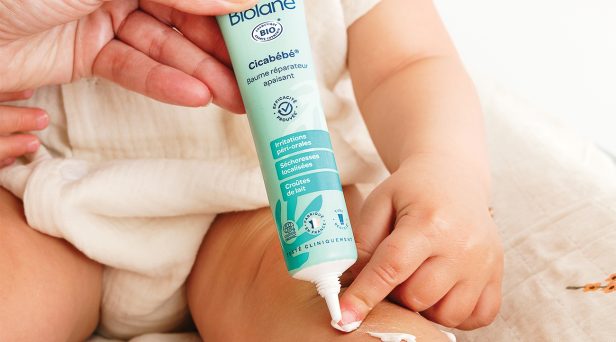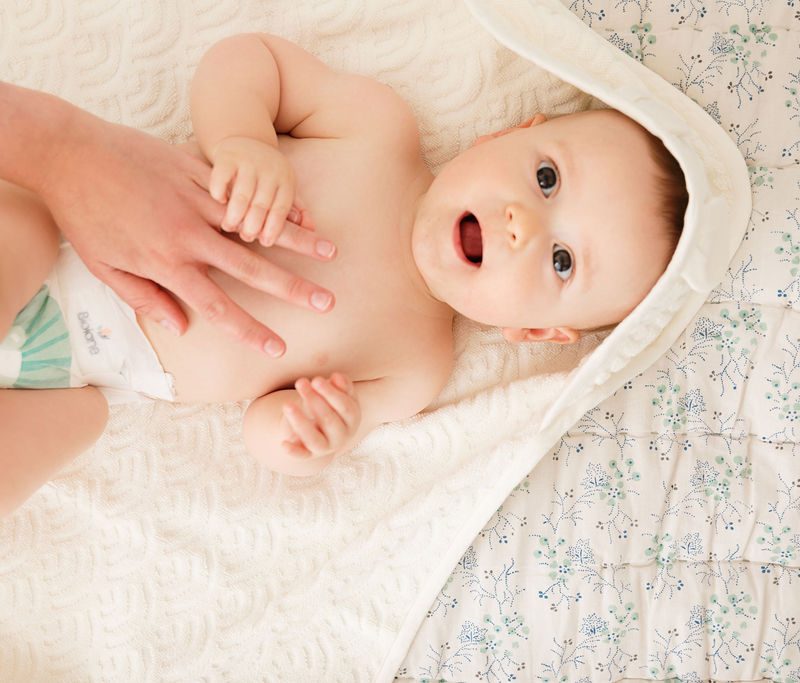
Taking care of your baby’s sensitive skin is very important… Especially in winter! We tell you why, and what you need to do.
Taking care of your baby’s sensitive skin is very important… Especially in winter! We tell you why, and what you need to do.
Why is it (absolutely) necessary to use a moisturizing cream for your baby’s skin?
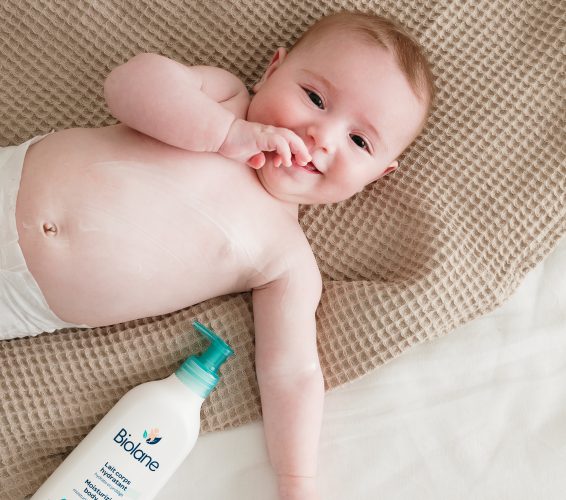
You love the smell of it, and you could smell it for hours… Ever since he was born, your baby and his soft skin have become the apple of your eye, haven’t they? But as you can probably imagine, this silky-soft skin is highly sensitive, fragile and particularly vulnerable to external aggression. In fact, it’s estimated that a baby’s skin is five times thinner than that of an adult. So it needs at least five times more protection!
In winter, with the cold, rain, wind and so on, the hydrolipidic film on your baby’s skin is often put to the test.

Except that this protective film is the skin’s main defence barrier against bacteria. So, there’s only one way to protect it: MOIS-TU-RI-ZA-TION! How can you hydrate your baby’s sensitive skin the best? First, by using the right products, like a moisturizing cream! And then, by applying the right gestures on a daily basis. For instructions on how to keep your baby’s skin perfectly moisturized, it’s right below!
Moisturizing cream, Cicabébé®, sweet almond oil… The products to moisturize your baby in winter
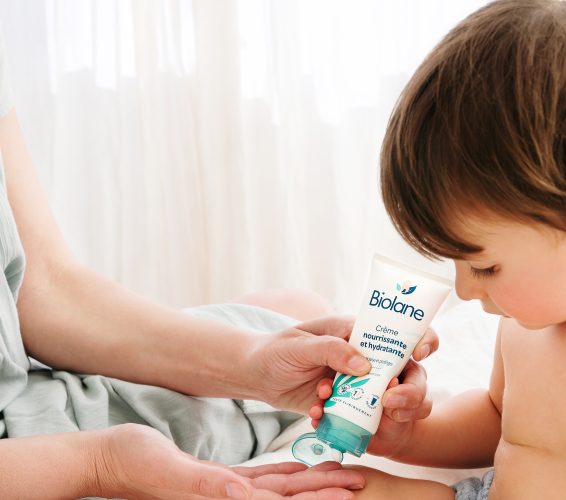
Does your baby have “normal” skin, with no major redness or chapping?
You can use traditional skin care products! A nourishing and moisturizing cream or moisturizing body milk will be perfect!
Does your baby suffer from irritation in the mouth or other localized areas?
On these dry areas, apply Cicabébé®, formulated for :
- Localized dryness: this care moisturizes, intensely nourishes, and isolates dry areas to maintain the skin’s natural moisture level.
- Peri-oral irritation: the addition of bisabolol and phytosterol, active ingredients recognized for their soothing properties, effectively relieves and repairs irritation around the mouth.
Biolane’s little plus: sweet almond oil to reinforce hydration.
- A few spritzes directly into bath water, before applying moisturizing cream.
- Directly into your hands to gently massage your baby (and enjoy a real moment of exchange and complicity, while taking care of his or her skin). You can also combine it with your usual moisturizing cream. For all our advice on the best techniques for massaging your baby, read our dedicated article!

Obviously, we can only advise you to choose products with the most natural formulas possible, and with clear, transparent ingredients. If they’re made in France, that’s even better, isn’t it? Well, we have a small selection of products specially formulated to moisturize, nourish, protect and deeply soothe your baby’s sensitive skin!
Biolane moisturizing essentials :
- Our Nourishing and moisturizing cream
- Our Moisturizing body milk
- Our Cicabébé®
- Our Sweet almond oil
Now that you’ve become true experts on the best products to select to moisturize your baby’s skin in winter, how about a quick update on the right gestures to apply daily?
Apply moisturizer, bath frequency… The right steps to protect your baby in winter.
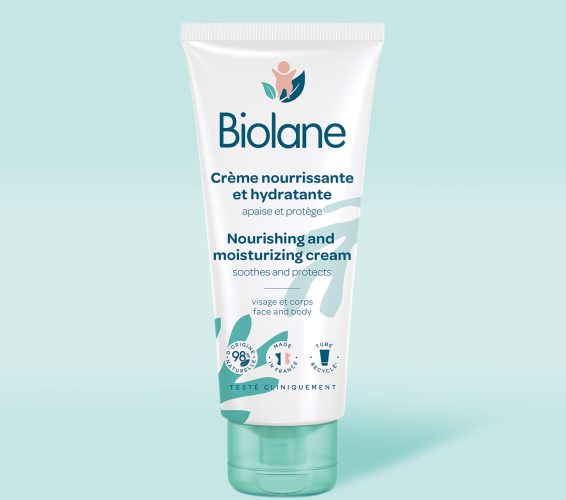
-
Moisturize your baby’s skin once a day with a moisturizing cream or other suitable product:
Preferably after bathing, once he’s thoroughly dry. To dry your baby’s skin gently, remember to pat rather than rub. You know that particularly unpleasant sensation of a rough towel on your skin? Then imagine it on your baby’s sensitive skin…
-
Before each walk, apply some cream
To all areas exposed to external aggression (mainly his face). It’s not a problem to add a layer on top of the moisturizer already applied earlier in the day.
-
Give him 3 baths a week maximum
Until he’s old enough to get dirty. Then you can increase the frequency of baths. Be extra vigilant when it comes to bath time. Water temperature, for example, should not be too hot to avoid drying out the skin!
-
Choose clothes made from natural fibers
To let the skin breathe as much as possible and avoid perspiration (cotton, linen, wool…).





